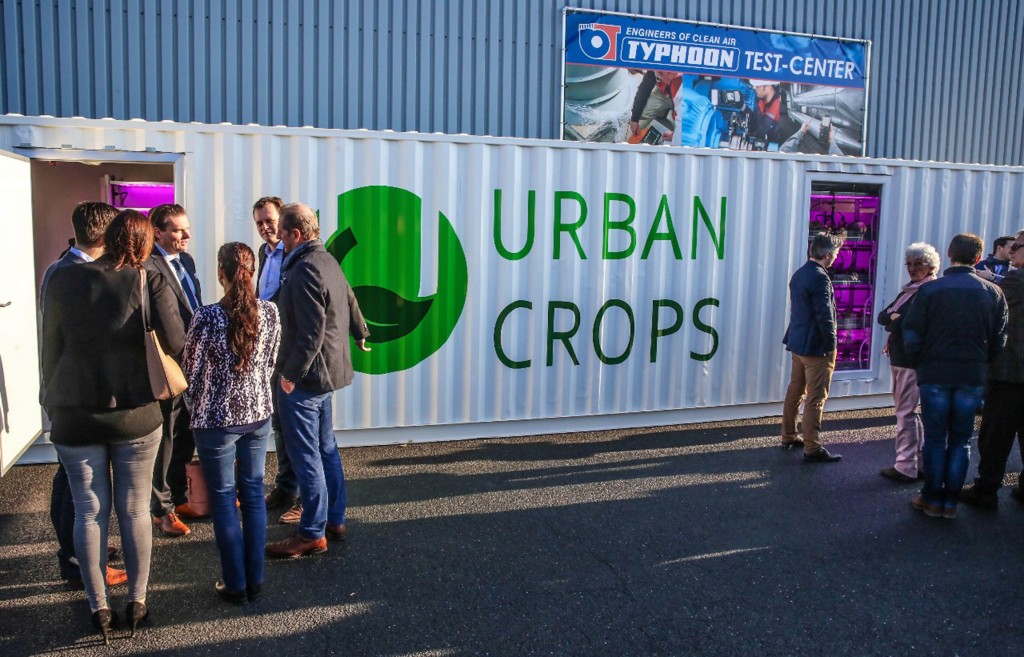Belgium: Shipping container urban farms bring food closer to home

A Belgian company is taking second-hand shipping containers and re-purposing them as self-contained urban farms to bring food production closer to the people eating it.
Urban Crops specializes in 'localizing' the production of herbs, lettuce and other leafy vegetables, with farming systems that operate inside an old shipping container complete with LED lighting and climate controls that can be operated via a smart phone or tablet device.
The company also officially opened what it describes as 'Europe’s largest automated farm' at its Waregem headquarters last week, as part of its ongoing research and development program.
This turnkey engineered fully automated installation is approximately 90 square meters, and covers eight growing layers or floors, amounting to a growing space of 240 square meters.
Each layer can be independently operated with LED lighting as well as irrigation and climate-controlled systems so that a range of crops can be grown at the same time.
It has potential to harvest 200 crops of salad per day and the possibility to produce eight different 'recipes' simultaneously.
"It’s taken around two years to come this point and now we have a state-of-the-art installation which is for research and development purposes and not for commercial production," Urban Crops co-founder Maarten Vandecruys tells www.freshfruitportal.com.
"The idea is that our R&D team will work on the right growing recipes for a variety of crops so that we can expand our product offering.
"Meanwhile our two different types of containers, a manually operated urban farm and an automated farm, are ready for market and we’ve already been receiving a lot of interest."
The 'Farm Flex' and the 'Farm Pro' are like mini plant factories that can be installed and used by the food service industry, growers and the wholesale sector.
"Hotels, caterers and restaurants like to grow their own crops and they don’t just focus on the production costs but also the flavor and taste of their crops as well as the look and feel of them. Chefs also like to see the plants growing and be more involved with the production of crops.
"On the other hand, we also have wholesalers and even farmers who are more focused on production costs. They might just want one crop as an addition to their current product offering so they can expand their range.
"The system can be controlled through your smartphone or tablet device which connects to the container and you say 'Now I want to grow lettuce in this area' and then the nutrient dosage, climate and light settings adjust to that crop."
For example, 250 grams (8.8oz) of Oakleaf lettuce can be grown in 18 days, according to Vandecruys and research is going on to develop the best growing recipes to produce high yields of blueberries and strawberries.
"We were amazed with how quickly these lettuce grew and how the yields were in such a short space of time."
The Bigger Picture for Urban Crops
Although the container installations have only just come onto the market, the company does have a grand plan to target markets in locations adversely affected by the climate.
"Our approach is to concentrate on areas where it is very difficult to grow such as Nordic and desert regions. These locations are very dependent on imports, which in most cases also reflects on the quality, and so people are looking for a different approach to food production.
"Our systems will help make these types of regions more independent in terms of food production and to create crops that have a good added value in terms of nutritional value."
Minister-President of Flanders, Geert Bourgeois officially opened the R&D facility last week.

































